In this issue, I share things seen at two editions of the Jaipur Literary Fest in 2019. I was sneaky both times, but the second time they were expecting me. I also share important words about why words don’t matter at all. This newsletter is rich in irony. Is this what irony means? Even that doesn’t matter. Read on!
If you know someone who may like the SneakyArt Post, why not share this post with them?
Jaipur Lit Fest 2019 (India)
I had wanted to attend JLF for many years before chance and circumstance colluded to make it possible. I was there to see some people that I had only read until that point. But that was not all. I was really there to look at everything. Where do speakers speak? Who listens? What kind of people attend a lit fest? What do they do there? I wanted to take it all in. Read a full account on my blog - Part 1 and Part 2. Here is some SneakyArt I witnessed.
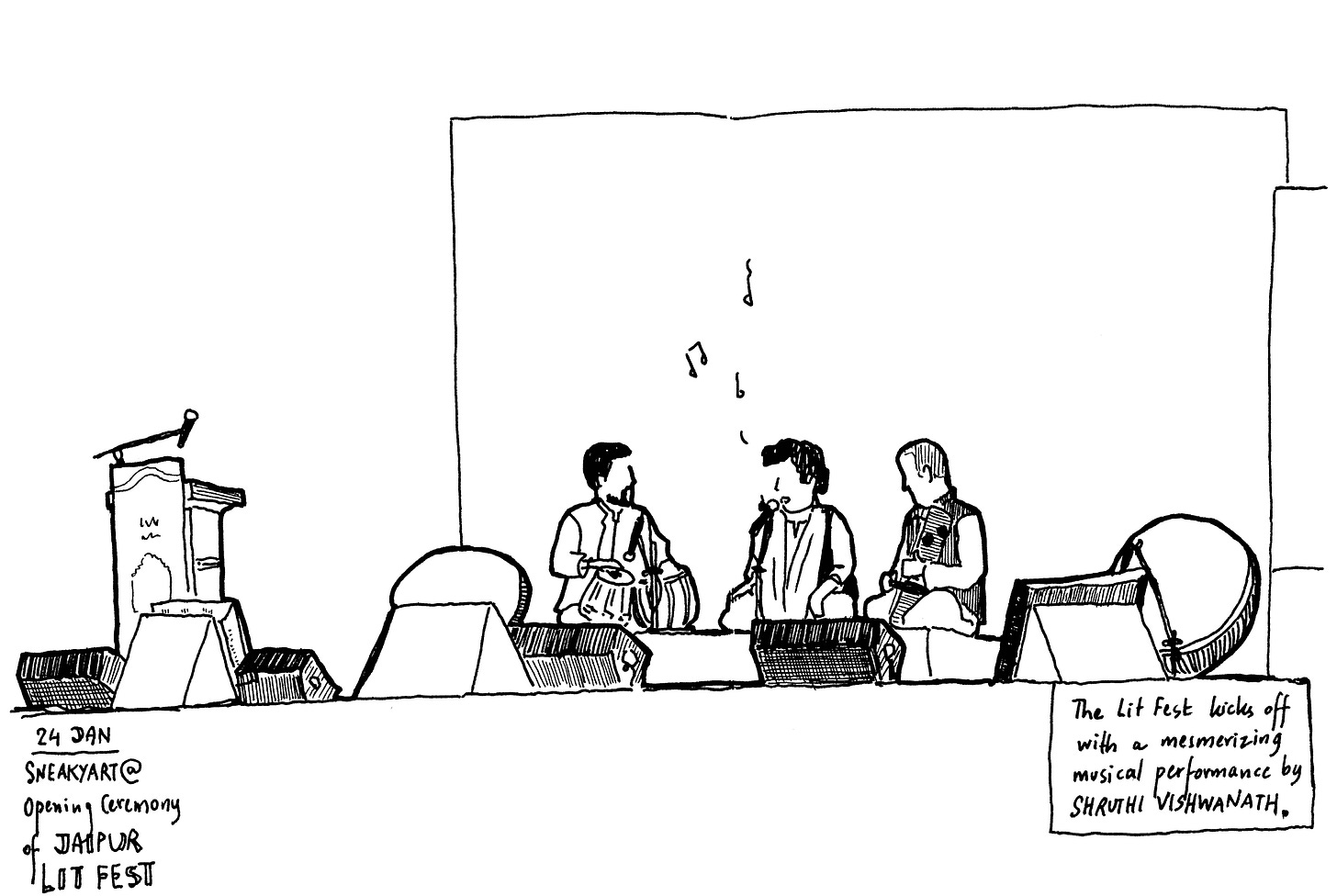
Shruthi Vishwanath kicks off Day 1 with the morning raga
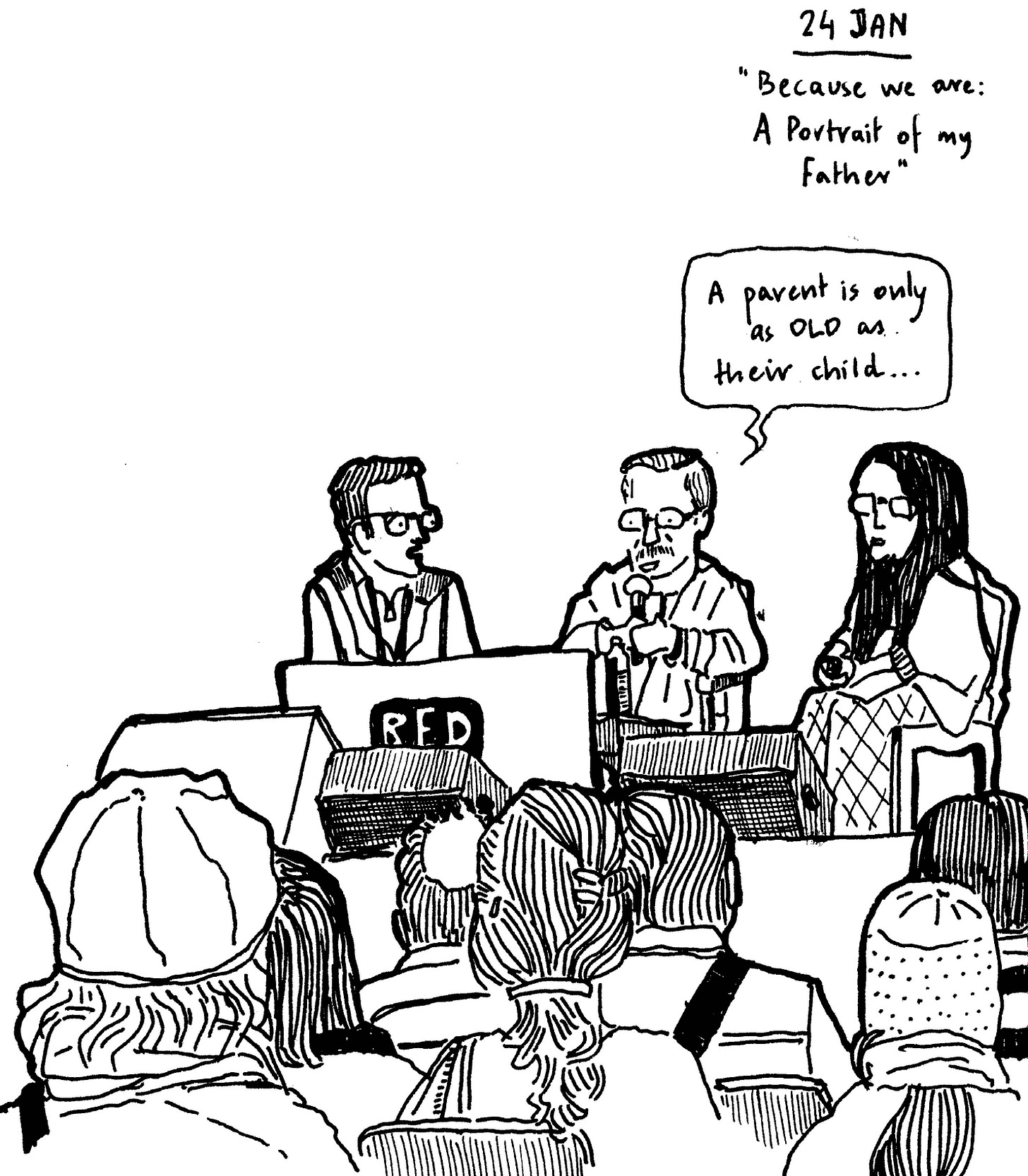
Lyricist-poet Gulzar speaks about being a parent
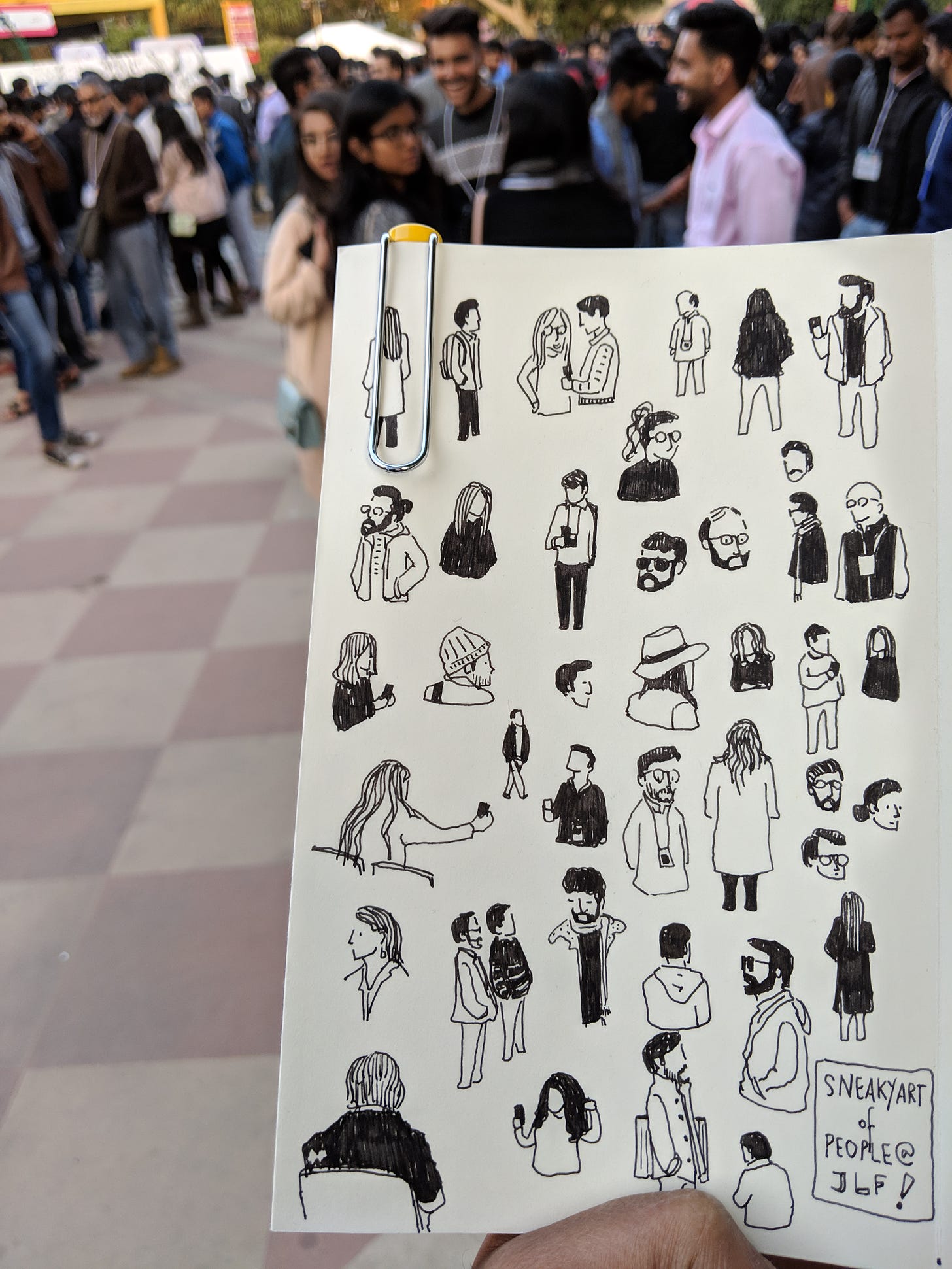
Crowd on Day 3
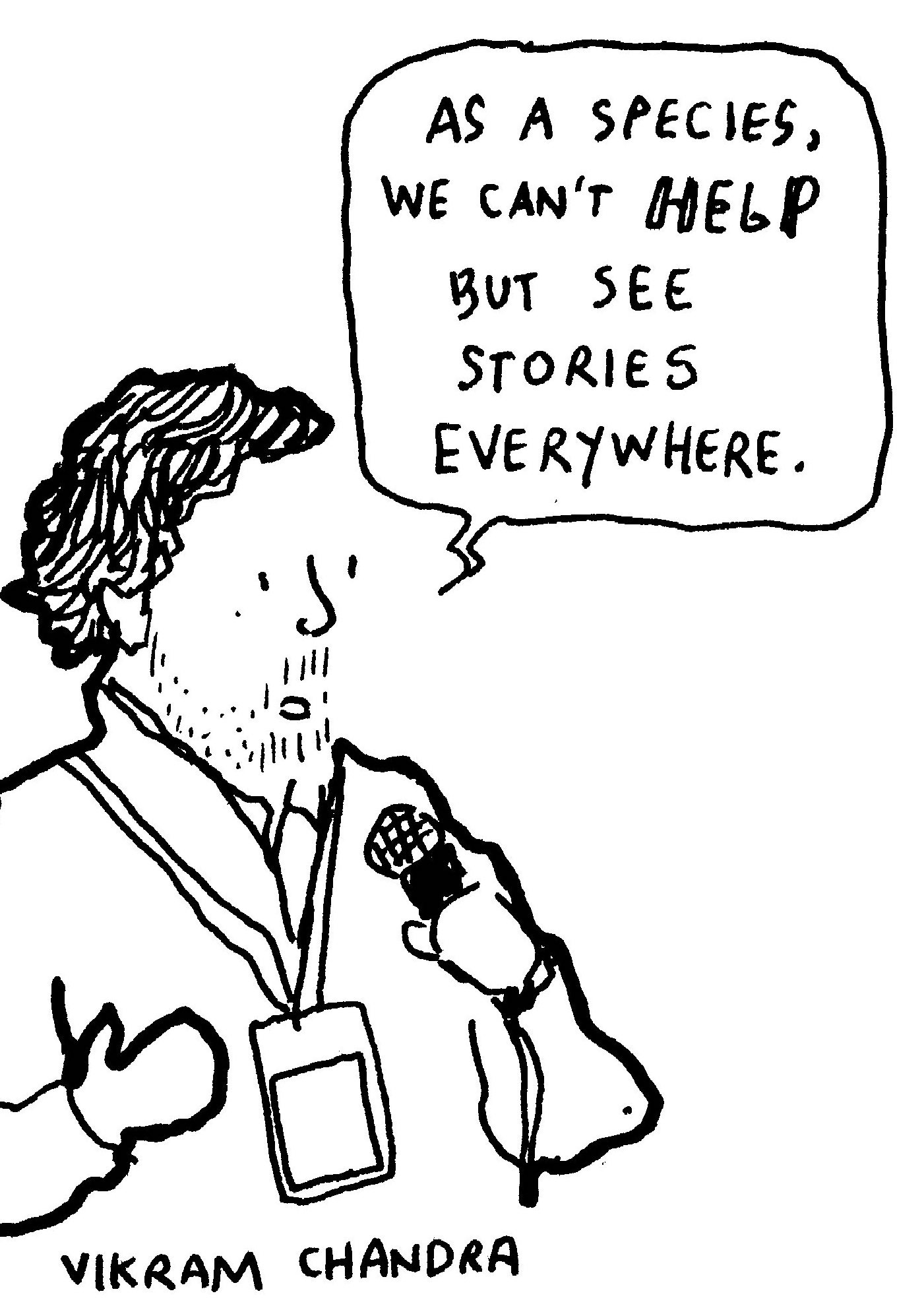
Vikram Chandra, writer of the novel ‘Sacred Games’
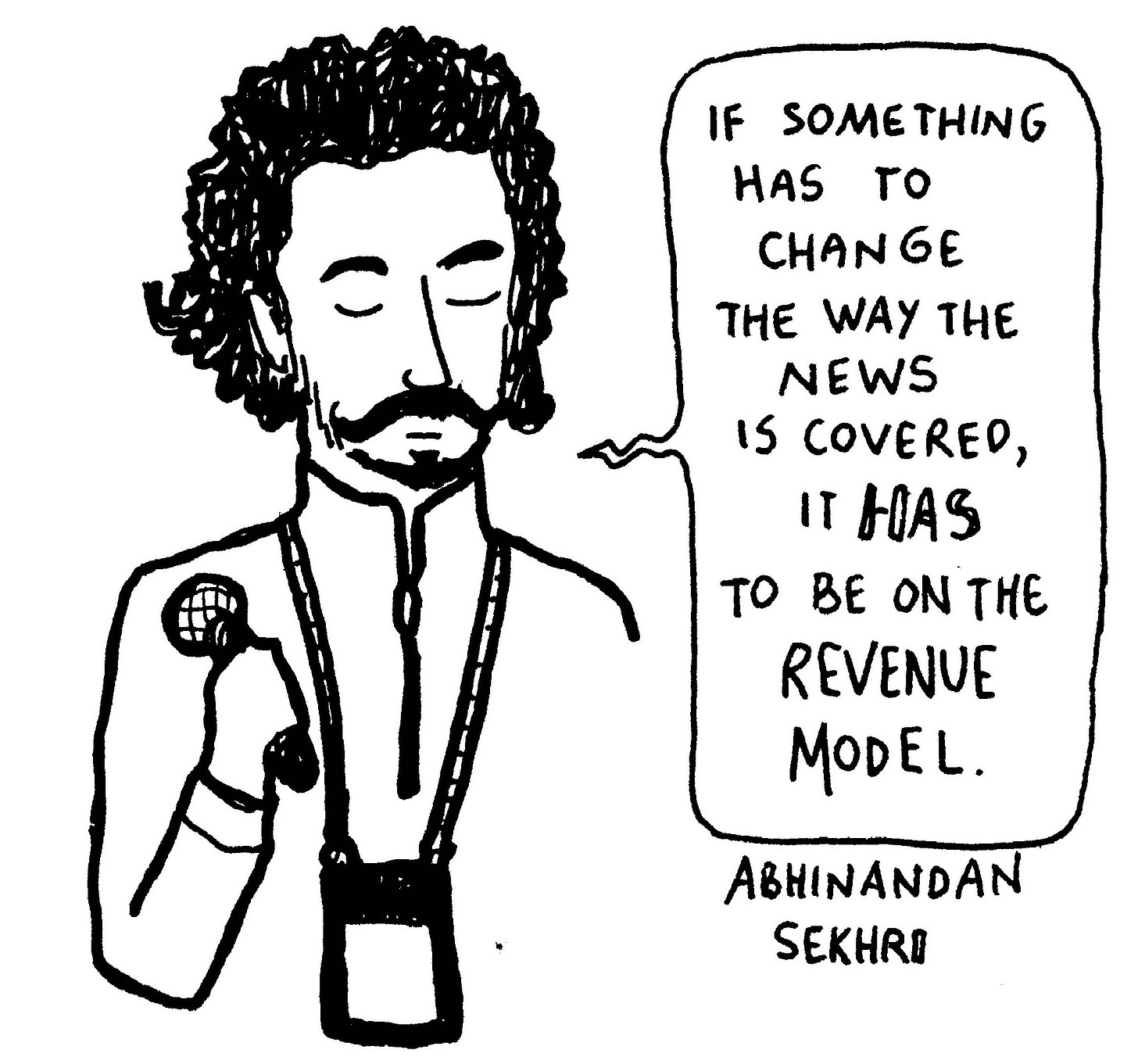
Abhinandan Sekhri of Newslaundry, about news revenue models
From one to two
My sketches caught attention on Twitter. I was contacted by a journalist with the Times in London. Not only had she attended JLF, she had found herself in one of my sketches. This lucky happenstance led to the publishing of my work in the next issue of the Times Literary Supplement. I also interviewed with the Mid-Day and FirstPost.
I leveraged this brief moment in the spotlight to arrange a meeting with Sanjoy Roy at the Teamwork Arts HQ in New Delhi. He loved the sketchbook, and invited me to JLF in Boulder, Colorado.
Read a full account here about my experience as official SneakyArtist at JLF Boulder.
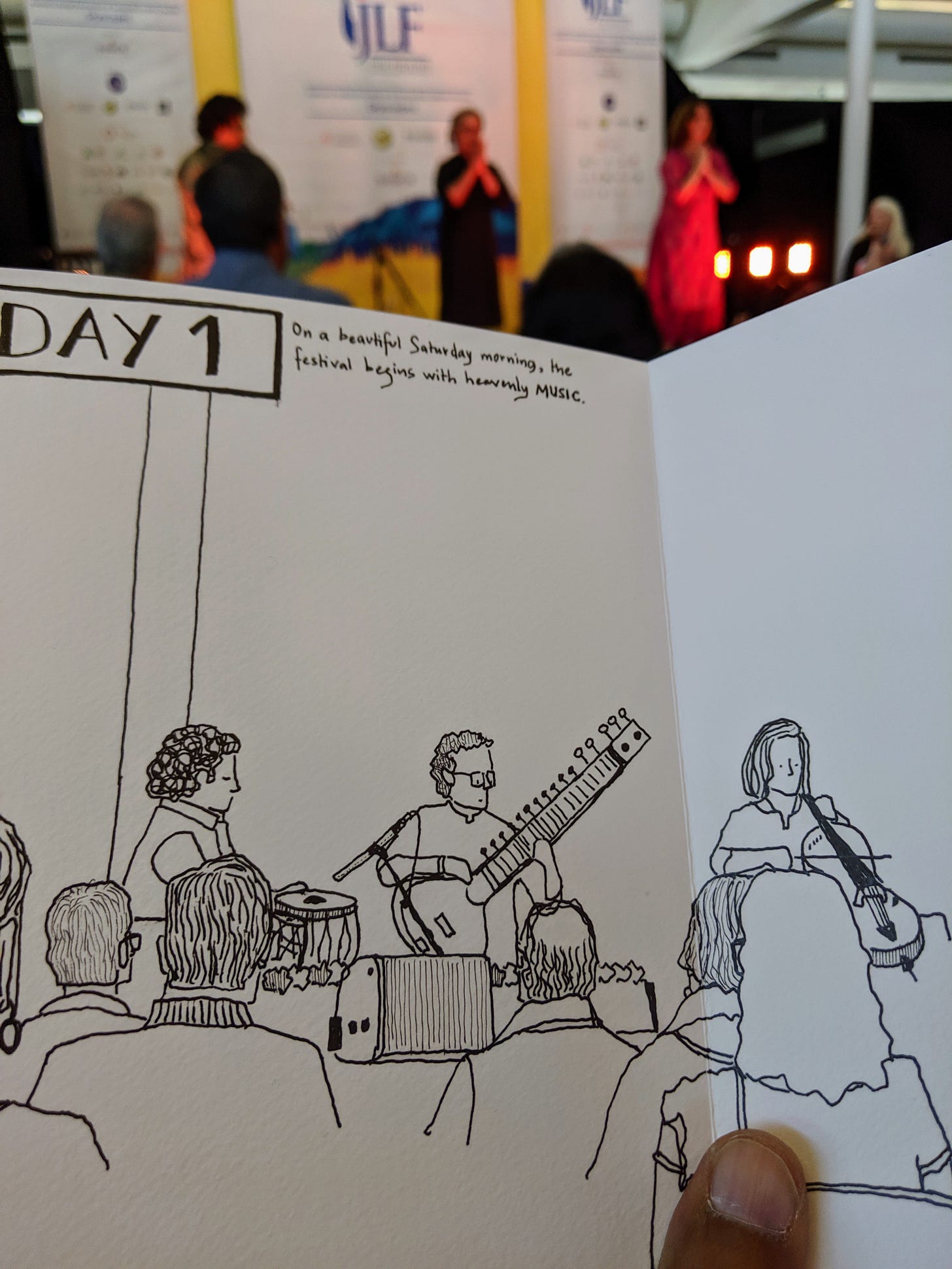
The morning raga of Day 1
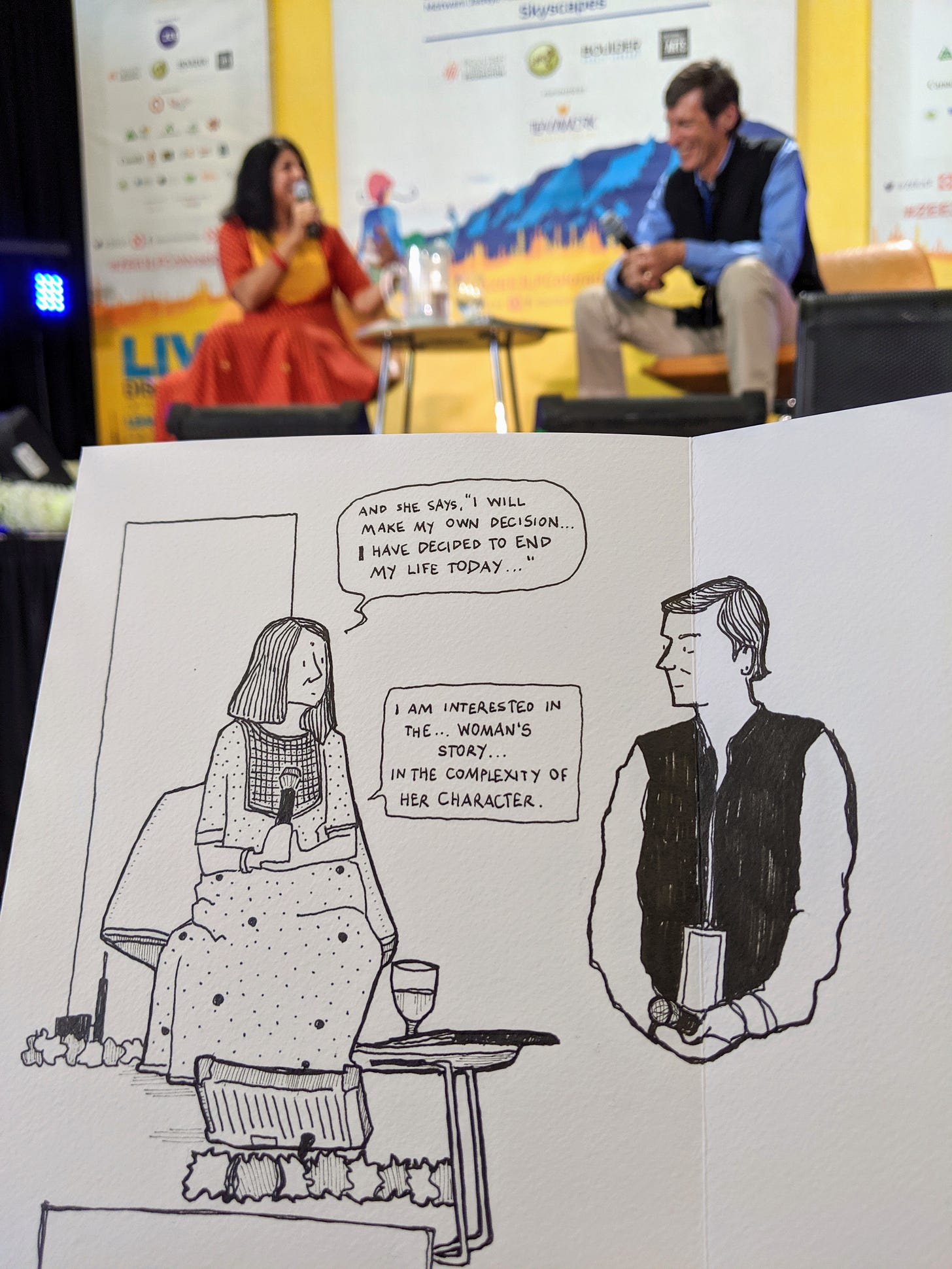
Author and teacher Chitra Banerjee Divakaruni speaks about Sita.
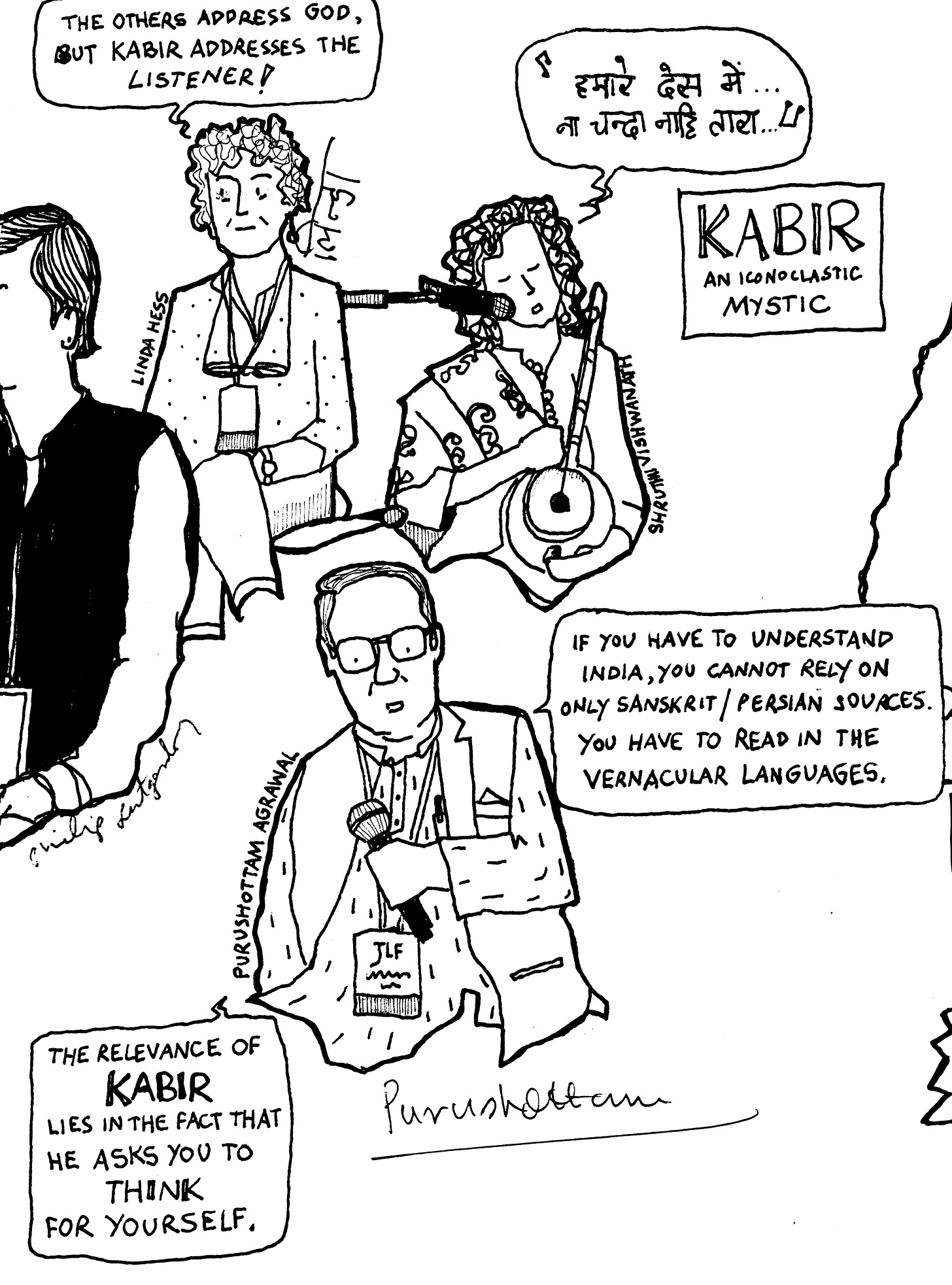
Scholars with different specialties, and indeed even different means of expression, share the work of the 15th century mystic poet, Kabir.
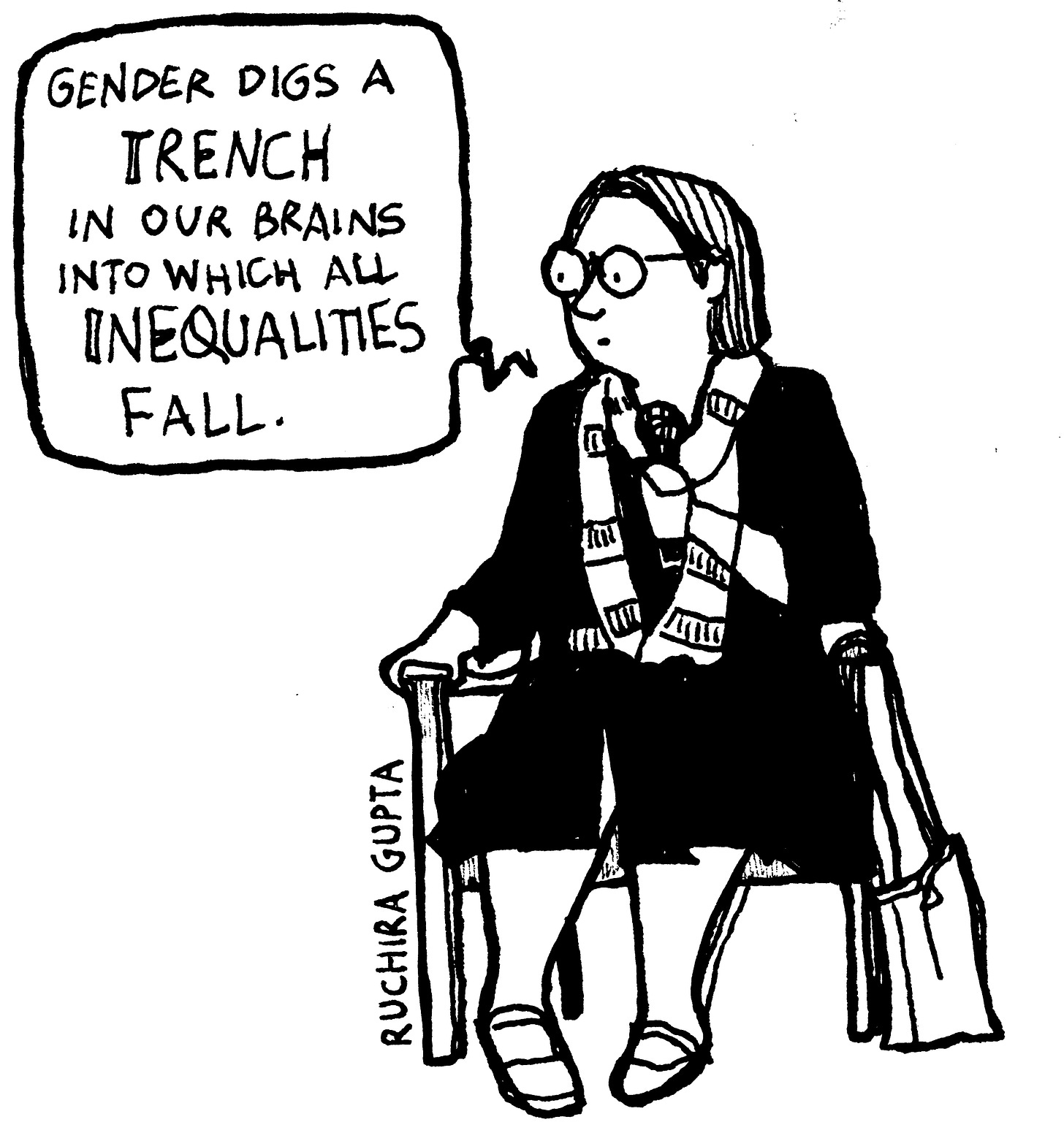
Ruchira Gupta speaks with Sohaila Abdulali about the latter’s book, “What We Talk About When We Talk About Rape”.
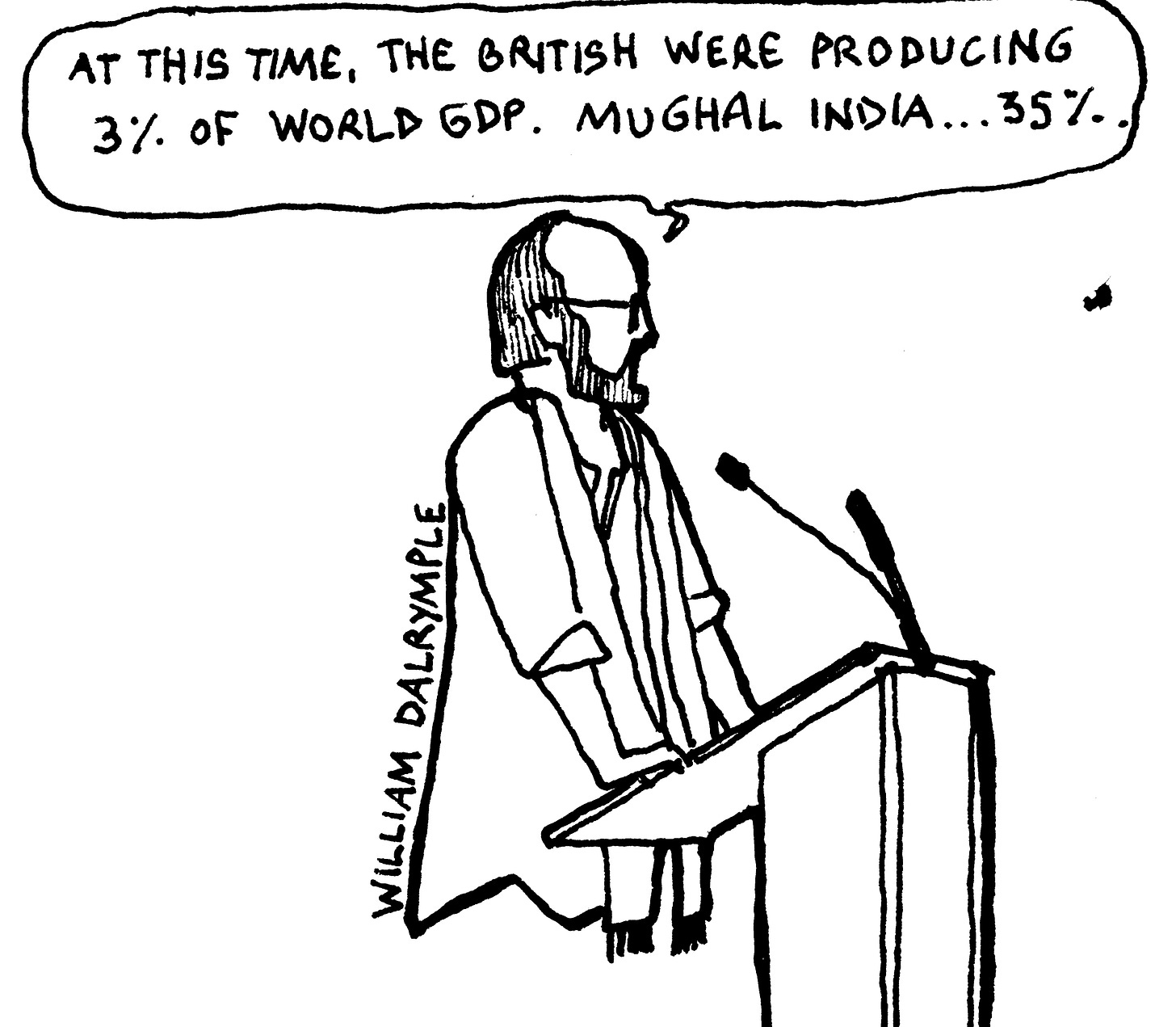
William Dalrymple, introducing ‘The Anarchy’
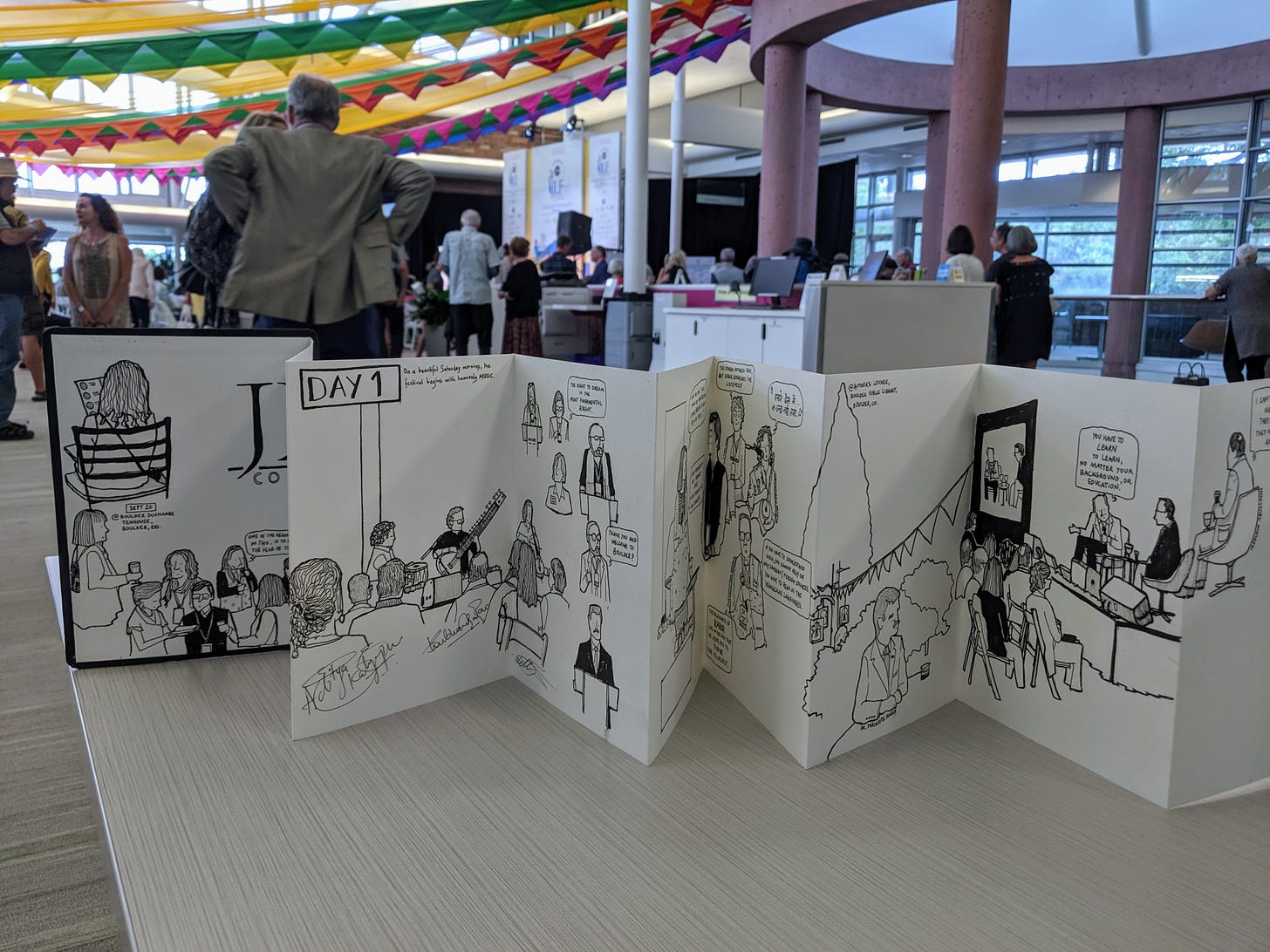
I made my drawings inside this accordion style sketchbook. Day 2 was on the other side.
Why don’t words work?
“Philosophize This” is a podcast I enjoy. As a curious person, I am eager to get to the roots of things, and philosophy is about getting to the roots of everything. But a podcast is a good way to avoid the painstaking task of reading entire books on philosophy. I highly recommend it if, like me, you want to hack your way to some basic understanding.
I was piqued by a recent episode, on the subject of words. It is estimated that the typical person interacts with 3000 pieces of textual information everyday - messages, emails, headlines, tweets etc. Yet, it seems we are quite bad with words.
Does this describe a conversation you’ve recently had?
You speak carefully, so that you are not misunderstood. Your arguments are logical, and you use only the best words. You make sure that everything makes perfect, logical sense. You revise it before hitting ‘send’. Nevertheless, you fail. Those you mean to shame, do not appear shamed. Those you try to convince, remain unconvinced…
The problem, according to French thinker Jacques Derrida, is that we have a naive understanding of words.
Words mean different things to different people. This is understood in linguistics as synchronic vs diachronic meanings. A word’s synchronic meaning is its most recent meaning, within the context you have chosen. Its diachronic meaning is a long trail of everything that word has meant to different people at different times in different contexts.
For example, consider the word ‘justice’. Depending on your views on capital punishment and “an eye for an eye”, justice can mean very different things. Now consider that we regularly have conversations about complicated words with contentious diachronic meanings - freedom, capitalism, democracy, fascism, liberal, socialist. Is it any wonder we are unable to communicate?
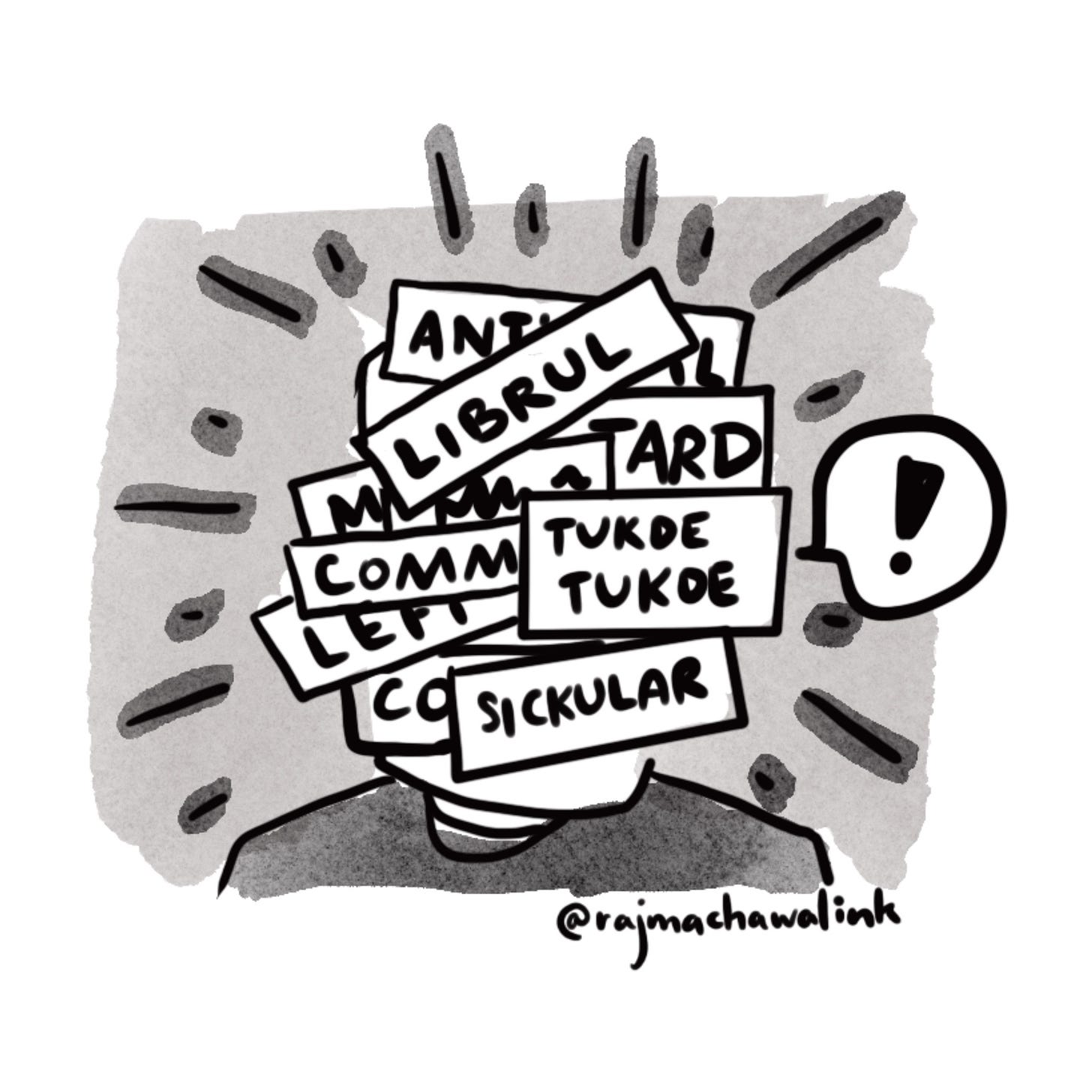
Expressing ourselves with words is a desperate attempt to repress all the other meanings of those words, in the hope that our own meaning will shine through. It is a task doomed to failure. And this is why, says Derrida, every statement is a lie. Everything you say means something other than what you intend.
What does this mean? If every statement is a lie and (as they taught me in Systems Engg class) “all models are wrong”, what are we even trying to do? What is the point of saying things?
Read here to follow my line of enquiry with this podcast.
In next week’s issue, we will consider the usefulness of “lies”, taking lessons from science-fiction, religion, systems engineering, and SneakyArt.
I leave you with a quote from one of my favorite books of all time - ‘Cat’s Cradle’ by Kurt Vonnegut:
“Anyone unable to understand how a useful religion can be founded on lies will not understand this book either.”
Have you been to a lit fest? Do you have thoughts on Derrida, his words, or the nature of lies versus truth? Are you a Kurt Vonnegut fan like me?
Thank you for your attention, and see you next week.



